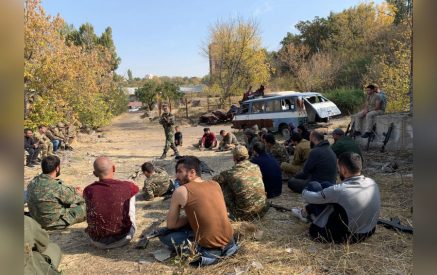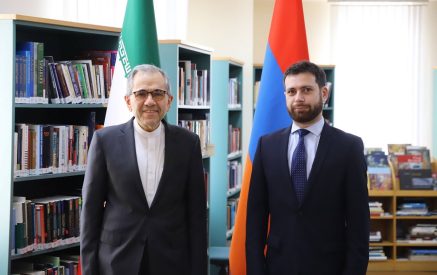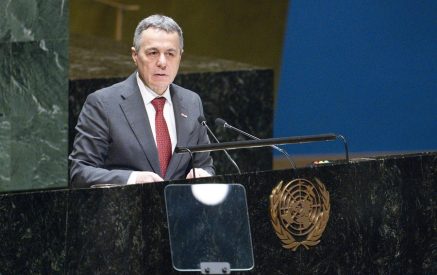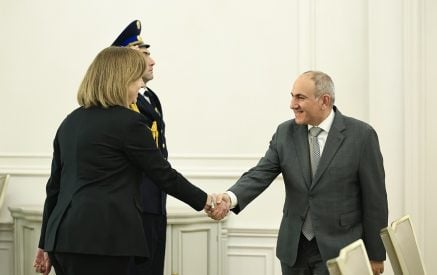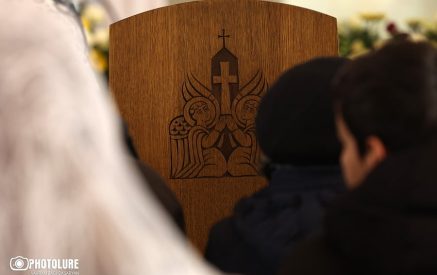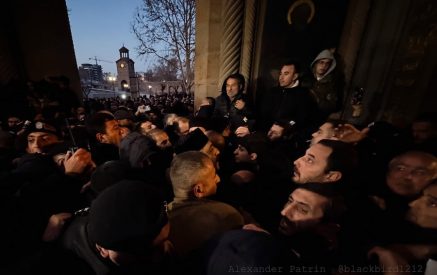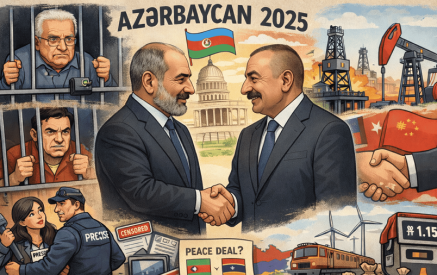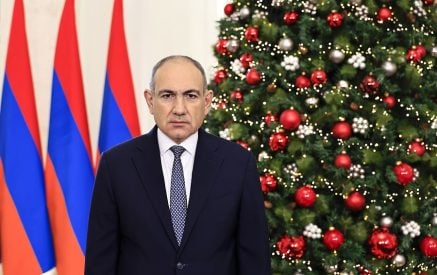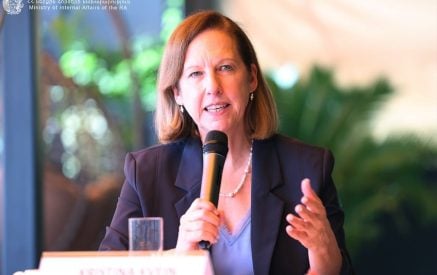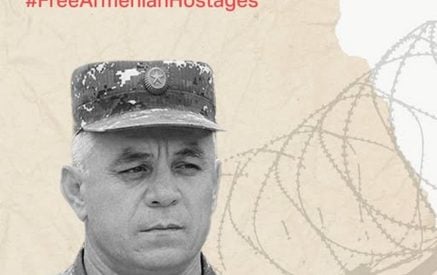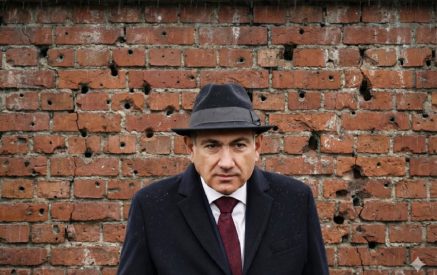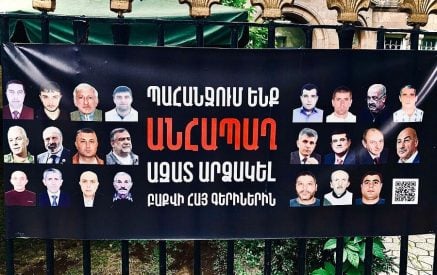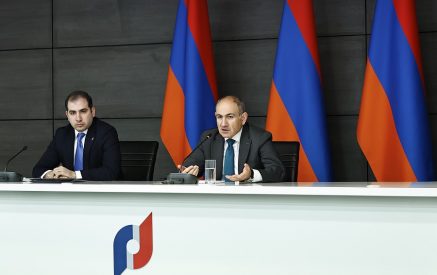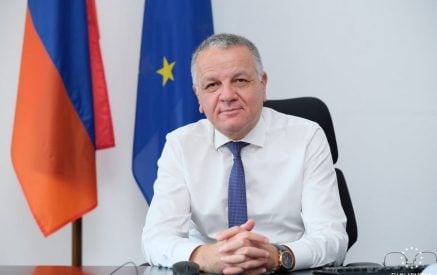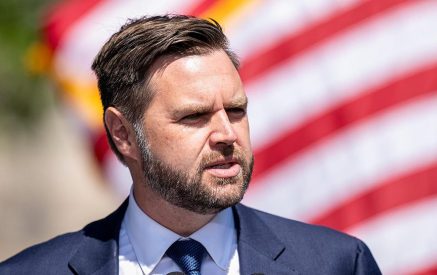Michael Rubin
On August 8, Armenian Prime Minister Nikol Pashinyan and Azerbaijan President Ilham Aliyev met with President Donald Trump at the White House to sign a document expressing their intent to achieve peace. Many of the details of their settlement remain ill-defined or absent; Trump’s ceremony was akin to a ribbon-cutting for a building still under construction.
Each of the leaders approached the White House meeting with a different motive: Trump openly craves a Nobel Peace Prize. “If I were named Obama I would have had the Nobel Prize given to me in ten seconds,” Trump lamented on TruthSocial. He has referenced winning a prize on five other occasions. Marking his administration’s first six months, the White House bragged, “As a result of his historic peacemaking efforts, President Trump has already received three Nobel Peace Prize nominations.”
Read also
Pashinyan wants not only peace but an agreement completed before elections, for he fears having to debate his concessions openly and believes the promise if not triumph of the agreement will make that debate moot.
Is Azerbaijan Sincere about Peace?
Aliyev’s considerations are different. He seeks not peace but a process from which he can profit politically and financially while furthering his ideological ambitions to destroy Armenia. Azerbaijani rhetoric does not indicate a desire for peace, nor does his denialism of Armenia’s historic legitimacy suggest the resolution of conflict.
Domestic politics also plays a role: Pashinyan may be personally prickly and his popularity cratering, but Armenia’s post-2018 political debate is broad and vibrant. Pashinyan and his opposition debate directly about domestic issues across the gambit. Corruption remains a problem in Armenia, but it no longer hijacks the state; Transparency International ranks Armenia alongside Greece, Slovakia, Croatia and Malta in its annual corruption survey. Under Aliyev, though, Azerbaijan is a kleptocracy and among the world’s most corrupt countries, on par with Iran and Russia. While Armenia’s score has improved in recent years, Azerbaijan’s trajectory is opposite. Next year’s listing may very well see Azerbaijan fall to Haiti and Myanmar levels. Aliyev and his family may be billionaires, but most Azeris live in squalor.
This creates a dangerous dynamic. Aliyev needs to distract his population with an external enemy, lest they begin questioning his competence and legitimacy. For decades, Armenian control in Nagorno-Karabakh provided that distraction. With Nagorno-Karabakh conquered and its indigenous Armenian population expelled, Aliyev must find a new enemy or face collapse.
That enemy remains Armenia, hence the increase in Aliyev’s rhetoric about Armenia being Western Azerbaijan and his demand Azerbaijanis who claim descent should return Armenia, with Azerbaijani militias deployed to protect them. This is why a signing ceremony for an incomplete deal is so dangerous: Pashinyan embraces diplomacy as a means to resolve conflict but Aliyev sees talks as an asymmetric warfare strategy to gain immunity for his actions through a process while consolidating his position. Nor is his supremacist ideology so easily forfeit.
Will the Peace Agreement Last?
Armenia has to date shrouded the peace process in secrecy. This is a bad look for a democracy, because it suggests its leaders rather evade than engage in debate. If Pashinyan believes that his deal represents the best, most realistic, just and permanent outcome, he should not be afraid to defend it.
There is a danger, however, among those in power that they embrace blindly the most optimistic scenario and suppress naysayers who cast doubt or raise valid questions about the likelihood of the most advantageous outcomes. President Bill Clinton, for example, punished dissent as he sought to reach the 1994 Agreed Framework with North Korea. President George W. Bush downplayed the risks of regime change in Iraq. President Barack Obama belittled and silenced those who raised valid questions about loopholes in his 2015 nuclear deal with Iran.
The reality is that, effusive statements and pageantry of signing statements aside, Azerbaijan still seeks to eliminate Armenia, and this rushed peace agreement may actually bring Aliyev’s ambitions closer to fulfillment. Trump’s waiver of Section 907 potentially opens the flood gates for Azerbaijan to purchase weaponry from the United States, arms whose only purpose appears to be to kill Armenians.
While an economic corridor — now named the Trump Route for International Peace and Prosperity (TRIPP) — will traverse Armenia, its route remains uncertain. Economically, any such route should intersect Yeraskh, but Azerbaijan demands a southern route across Syunik, perhaps cutting Armenia off from the Iranian border near Meghri. Azerbaijan still craves — and increasingly encroaches — upon Syunik, and uses corridor schemes to advance its goals. TRIPP’s longevity is also questionable: There is little likelihood that it will survive Trump. Again, there is precedent: Aliyev agreed to abide by the November 9, 2020 ceasefire, only to violate it with a blockade and renewed invasion.
Will Azerbaijan Seize Syunik?
When Trump leaves office or dies, Aliyev may calculate that he can simply seize Syunik through force, much as he did Nagorno-Karabakh, especially since Azerbaijan’s population is more than three times that of Armenia. Even today, Aliyev respects Trump’s finger-wagging no more than he did Acting Assistant Secretary of State Yuri Kim, whose subsequent humiliation he relished. Simply put, while Pashinyan gambles on peace, Armenians should prepare for the worst.
Every Armenian should visit Kapan, the capital of Syunik, to see a vulnerability that it is possible to ignore living in Yerevan or Glendale. To land at the Kapan airport is to land on the Azerbaijani border; the situation is so dangerous that European Union observers monitor every flight that arrives or departs to ensure Azeri snipers do not try to down the plane. Along roads near the Armenia-Azerbaijan frontier, Armenian workers scramble to build bunkers lest Azerbaijanis occupying the high ground seek to cut off major roads and farmland. Residents in agricultural village like Nerkin Hand or resort towns like Jermuk live life under the constant threat of Azerbaijani snipers or artillery. Azerbaijan is well-practices in citing fictional provocations to justify attacks and occupation.
Are Armenians Prepared to Resist?
In such a situation, prudence dictates preparation, but hardware is not enough. Armenians face perhaps the gravest threat to their existence in the region since the Genocide. Simply declaring Aliyev a man of peace does not make it so anymore than declaring Talaat Pasha a humanitarian would make the chief architect of the Armenian genocide anything other than a man culpable for the murder of more than one million.
Pashinyan is the elected prime minister, but in a democracy, he does not win special status as the only voice for the nation, nor does he have a mandate to control civil society. If their government will not prepare, Armenians themselves should. Ukrainians prevented a Russian walkover of their country with careful preparation. Ukrainians had the patriotism, but they also had the skills – they had trained.
Likewise, even when the Islamic State swept across western Iraq and eastern Syria, Kurds resisted, hectoring the Turkish-backed Islamist group from behind its line and rescuing countless Yezidi and Christian captives.
The question Armenians must now ask is whether they are prepared to defend a Syunik under Azerbaijani occupation: Do Armenian men, women, and teenagers have weapons training? Have potential leaders established cells and hidden arms and ammunition caches? Do Armenians across Syunik have access to satellite phones, jammers, and other electronics they will need to communicate with each other or confuse Azerbaijani drones and patrols? Do Armenian cells have access to night vision goggles, sniper scopes, and even the components for improvised explosive devices to counter invader armor?
Prior to 2020, Armenians were unprepared, especially for Azerbaijani drone warfare and for new ways of fighting. Too many Armenian politicians were in denial that Azerbaijan would simply start a war, especially against the backdrop of the Minsk Process. Today, Pashinyan, Aliyev, and Trump might celebrate a new agreement, but Armenians should ask whether history is simply repeating.
(Michael Rubin is director of policy analysis at the Middle East Forum and a senior fellow at the American Enterprise Institute.)


